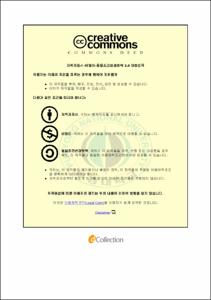초등학교 3~6학년 영어 교과서 역할놀이 분석
- Abstract
- The purpose of this thesis is to examine the elementary English textbooks for 3rd~6th grade students. The main focus will be on how the role plays in each text book are different and how they are developed. This study explores the wide range of theoretical backgrounds surrounding this subject. Firstly, it investigates the different types of drama activities used in the EFL class and the effectiveness towards learning a foreign language. On the basis of these theoretical backgrounds, it scrutinizes role plays in the textbook based on three criteria. Firstly, structural and contextual difference, for example, whether role plays are confirmed or open-ended, whether the roles are live roles or life roles, how many words are used in the presented role play scripts and what kinds of motives are used for them. Secondly, development and procedural difference, i.e, how role plays are developed in the textbooks and if they are related to writing and reading activities. Finally, teaching and evaluating differences, which means how the procedures of role plays are presented in the teachers' books and how the books guide evaluations after role plays.
The results from our analysis of the textbook are as follows:
Firstly, the role plays in the textbooks for 3rd~4th grade students tend to utilize fairy tales or stories and are mostly performed memorizing dialogues. On the other hand most of the 5th~6th graders are not only performing memorized dialogues but also using contextualized drills, cued dialogues and virtual role plays meaning the students try to solve their own problems in the role play.
Secondly, the role plays in the textbooks of 3rd~4th graders are restricted to 3P(presentation-practice-product) methods, but those of 5th~6th graders try to avoid these conventional ones and are open-ended. Also time alloted to the role plays is not enough for them to be explored and evolved in each lesson.
Finally, regarding evaluation and feedback, most of the textbooks do not cover enough information on evaluation and feedback.
This thesis highlights that each textbook has varying vocabulary scopes and different developing methods. It aims to help teachers choose a proper textbook appropriate to the region and the grade of students. It also considers the teaching and learning situation for teaching English using role plays. There is the possibility that it will arouse the importance and effectiveness of dramatic activities including role plays within the EFL classroom. It is hoped that it will act as a stimulant for teachers to study new methods for role plays and incorporate these into their lesson planning.
- Issued Date
- 2012
- Awarded Date
- 2012. 8
- Type
- Dissertation
- Publisher
- 부경대학교
- Affiliation
- 부경대학교 교육대학원
- Department
- 교육대학원 영어교육전공
- Advisor
- 오준일
- Table Of Contents
- I. 서론 1
1.1 연구의 필요성 및 목적 1
1. 2 연구 문제 3
1.3 연구의 제한점 6
1.4 용어의 정의 6
II. 이론적 배경 9
2.1 드라마 활동의 교육학적 가치 9
2.2 드라마 활동과 언어 능력 12
2.3 활용 가능한 응용 드라마 기법 14
2.4.초등학교 영어 교육과 역할놀이 23
2.5 역할놀이 평가 방법 26
2.6 선행연구 31
III. 연구 방법 35
3.1 연구 대상 35
3.2 분석 기준 36
IV. 연구 결과 38
4.1 역할 놀이 활동 유형 분석 38
가. 형식 및 내용 분석 38
나. 모티브 분석 41
다. 대본의 주인공 수 및 대사 횟수 분석 43
4.2. 역할놀이 제시방법 분석 45
4.3 교수 및 평가 방법 분석 55
V. 결론 및 제언 59
참고문헌 64
부록 69
- Degree
- Master
- Files in This Item:
-
-
Download
 초등학교 3~6학년 영어 교과서 역할놀이 분석.pdf
기타 데이터 / 3.84 MB / Adobe PDF
초등학교 3~6학년 영어 교과서 역할놀이 분석.pdf
기타 데이터 / 3.84 MB / Adobe PDF
-
Items in Repository are protected by copyright, with all rights reserved, unless otherwise indicated.